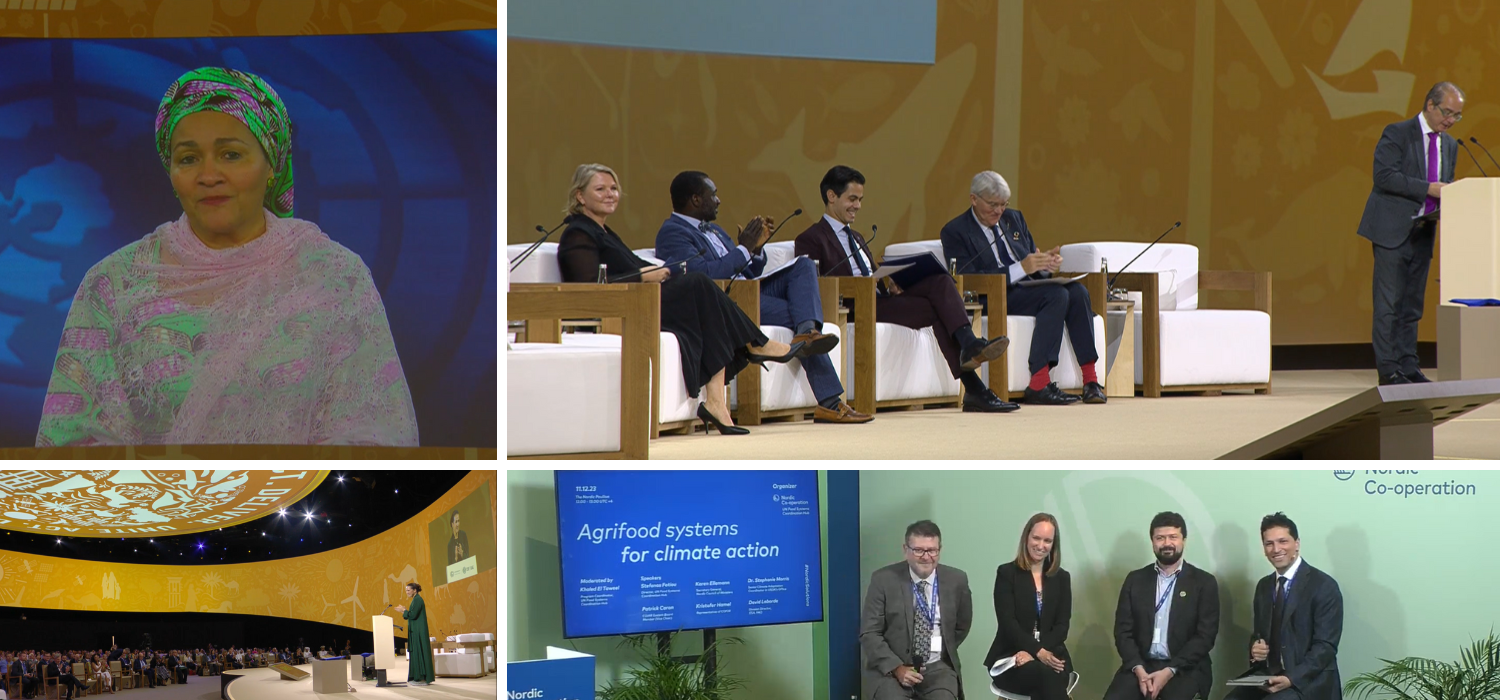SEED FUNDING JOINT PROGRAMMES
Cambodia
Transforming Cambodia’s food systems to become more sustainable, inclusive, and resilient


PROJECT TITLE | Transforming Cambodia’s food systems to become more sustainable, inclusive, and resilient |
| Context | Cambodia’s National Pathway is the outcome of an extensive consultation process, involving more than 2,000 people throughout thirty dialogues, which identifies four priority areas, namely healthy diets for all, empowerment of youth, women and vulnerable groups, resilient livelihoods and food systems, inclusive governance. Acknowledging the risks posed by climate change to hard won development gains and as a co-founder of the Alliance of Champions for Food Systems Transformation, Cambodia is prioritizing the integration of climate change and food systems transformation, building coherence across the agendas. The Council for Agricultural and Rural Development, the government agency coordinating food security and nutrition initiatives in Cambodia, is leading collaborative efforts to translate national aspirations into concrete action. |
| PUNOs | FAO, WFP, UNICEF |
| Contribution to SDGs | SDG 2 Zero Hunger |
| Contribution to other SDG transitions | Climate, biodiversity, pollution |
| Duration | August 2024 – July 2025 |
| Expected financial leverage | $3 million |
| Alignment with SG Call to Action | Policy integration; Food systems governance; Inclusive and participatory design; Private sector engagement |
| Outcomes | The Joint Programme fosters an enabling environment for food systems transformation by enhancing national capacities and policy frameworks, identifying opportunities to unlock financial streams, and strengthening advocacy efforts for food systems transformation. The JP provides crucial support to the alignment of the climate and food agendas, accelerating progress towards resilient, sustainable and inclusive food systems. |
| Partners | Council for Agricultural and Rural Development (CARD) will be the main government counterpart and will coordinate the government activities in conjunction with other key Ministries, including:
|
| Outputs |
|
Advancing sustainable food systems and climate goals at COP28
The UN Food Systems Coordination Hub collaborates with the COP28 Presidency to advance sustainable food systems and support national efforts towards the SDGs and Paris Agreement targets.

In a year of strategic partnership between the UN Food Systems Coordination Hub and the COP28 Presidency, the Hub marked its inaugural participation at the 28th Session of the United Nations Conference of the Parties on Climate Change (COP28) held from November 30 to December 12, 2023, in Dubai, United Arab Emirates.
The COP28 Presidency has underscored the vital role of food systems in accelerating the Sustainable Development Goals (SDGs) and the Paris Agreement targets. The Food Systems and Agriculture Agenda, launched during the UN Food Systems Summit +2 Stocktaking Moment (UNFSS+2) in Rome, prioritizes key food systems objectives, including aligning national pathways and agricultural policies with Nationally Determined Contributions (NDCs) and National Adaptation Plans (NAPs) by 2025. The Hub played a pivotal role in advancing these objectives and was acknowledged as a key partner in implementing the Emirates Declaration on Sustainable Agriculture, Resilient Food Systems, and Climate Action, endorsed by 159 countries. Additionally, the Hub's new Convergence Initiative gained recognition as a critical step in transforming food systems in alignment with climate action in addition to supporting the COP28 UAE Declaration's implementation.
During COP28's "Food, Agriculture, and Water Day," the Hub co-organized several events emphasizing the vital role of food systems transformation in addressing climate change. For more information, please refer to the Hub’s COP28 webpage.
This year’s COP marked a significant milestone in global efforts to address the crucial interplay between climate change and food systems. As the world faces the growing challenges posed by climate change, it is increasingly evident that transforming food systems is not merely a component but a linchpin in achieving a sustainable and climate-resilient future.
The Hub will continue to play its role, in cooperation with the COP29 Presidency in Azerbaijan, and the COP30 Presidency in Brazil, to ensure that food systems challenges are addressed and to support National Convenors in transforming their food systems to be healthy, sustainable, and resilient.
